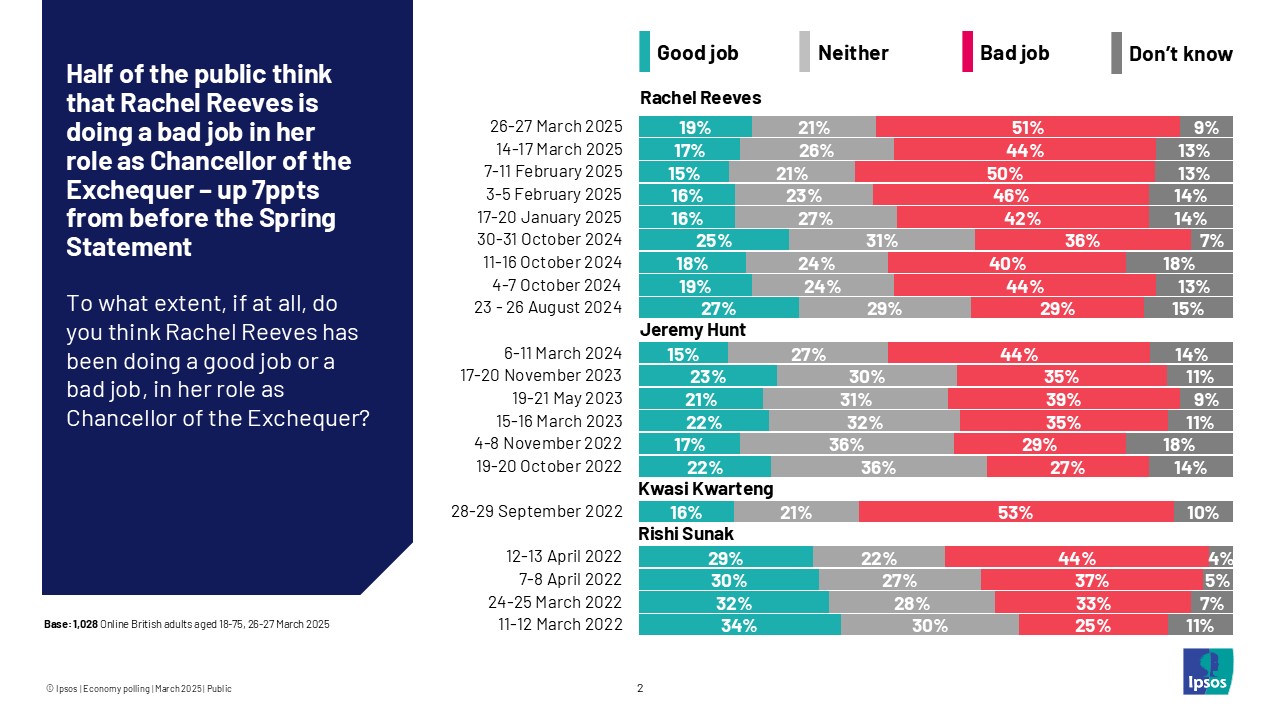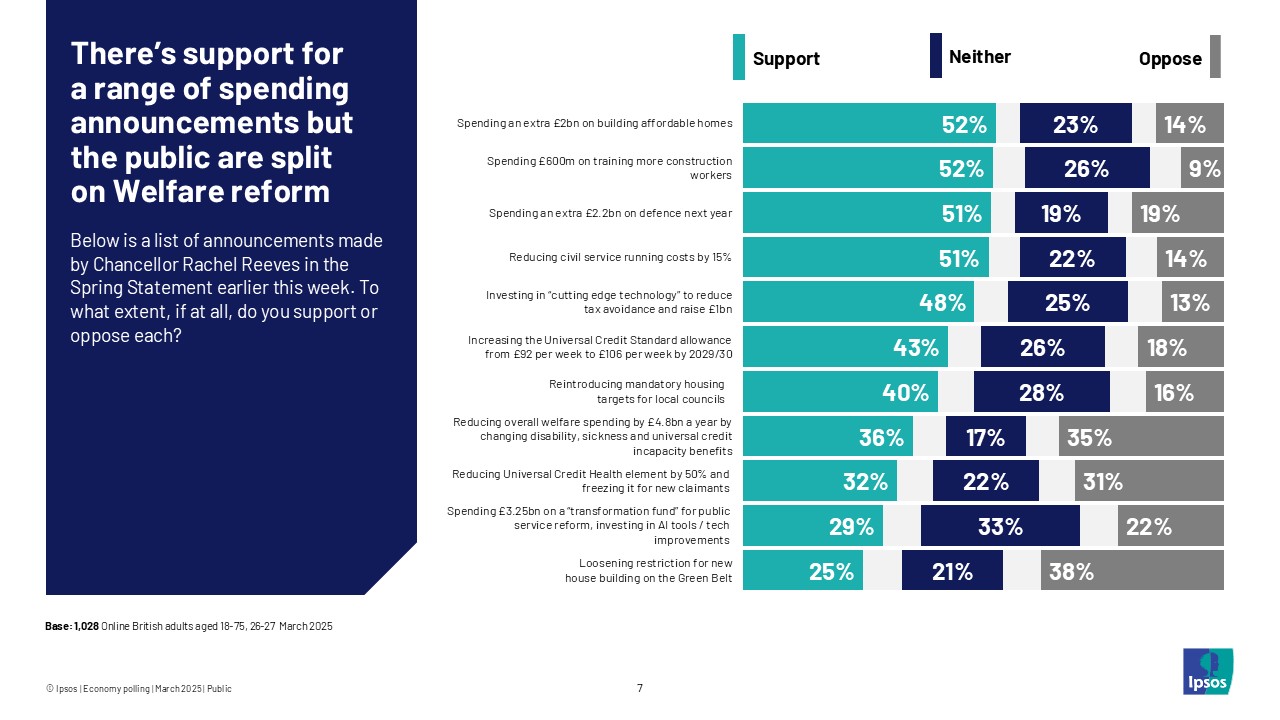Reeves’ performance rating as Chancellor after Spring Statement nears same level as Kwarteng post mini-budget
New polling from Ipsos UK conducted in the immediate aftermath of the Spring Statement (26-27 March) reveals that just one in five (19%) say that Chancellor Rachel Reeves is doing a good job, with half (51%) saying that she is doing a bad job, with criticism up 7 ppts from mid-March, before the Spring Statement.
The 51% saying Reeves is doing a bad job as Chancellor is worse than Ipsos recorded for Jeremy Hunt or Rishi Sunak (the worst for each was 44%). Her net job approval as Chancellor (-32) is approaching the ratings for former Chancellor Kwasi Kwarteng (-37) after the ‘mini-budget’ of 2022.

The Spring Statement has left almost three in five (57%) feeling more concerned than reassured about Britain’s economy, with the majority saying the same about their own financial circumstances (50%) and Britain’s public services (55%) following Wednesday's announcements. Pessimism about the economy and public services is notably worse than the reaction after the Chancellor’s Autumn Budget (+12, +16 ppts respectively).
Britons are most likely to have heard about reducing welfare spending (58%) and increasing defence spending (54%) out of a list of announcements made in the Spring Statement. They are also more likely to have heard about the OBR reducing its forecast for economic growth in 2025 than the news that it expects economic growth to be higher than forecast in the years after 2025 (by 40% to 27%). When it comes to support for these policies, half of the public support extra spending on building affordable homes (52%), funding for training more construction workers (52%), and spending an extra £2.2 bn on defence next year (51%). However, they are split on the plans to reduce overall welfare spending, with 36% in favour and 35% opposed.

The public are also divided on whether the government is increasing taxes too much (37%) or cutting spending on public services and benefits too much (35%) – but just 14% think the government has the balance right. However, the majority (54%) think the government treats people on high incomes better than they should, while almost three in five think the government treats pensioners (59%) or working people (55%) worse than they should.
Commenting on the findings, Gideon Skinner, Senior Director of UK Politics at Ipsos, said:
No Chancellor of the Exchequer wants their job approval to be compared to Kwasi Kwarteng’s time in Number 11, but Rachel Reeves current scores are nearing his post mini-budget levels. Half are critical of her performance, and the immediate reaction to the Spring Statement has done little to reassure the British public about the state of the economy, public services, or their own personal finances. In fact, the initial public reaction is less favourable than it was after her October Budget, reflecting ongoing public pessimism since then. Labour needs to try to change this narrative, but on first impressions Britons are more likely to have heard the news that economic growth will be lower in 2025 than the more positive forecasts for the economy in the future. And while the public themselves remain split on tax rises vs spending cuts, few think the government is getting the balance right. Immediate reactions from the public aren’t the final say, and some of her spending announcements do have majority support. Sometimes fiscal events look better – or worse – in hindsight, and it is delivery on issues such as the cost of living, economic growth, public services (especially the NHS) and immigration that will really count. But our research suggests Rachel Reeves is in for more difficult days as Chancellor.
Technical note
- Ipsos interviewed 1,028 British adults aged 18-75 by telephone, from the 26th-27th March 2025.
- Data are weighted to match the profile of the population. All polls are subject to a wide range of potential sources of error.




